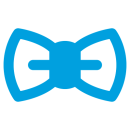Senior Software Engineer Sophie Zhang does not recommend that women seek out companies with women-focused engineering programs.
Her reason? “We don’t need special treatment — we just need equality,” Zhang told Built In.
She went on to point out two overarching truths: More single women than single men are buying homes, and more women than men are graduating from college. In other words, women don’t need help to succeed; they simply need the space to do so.
Zhang has seen the challenges women face in the workplace firsthand. She has watched women get assigned trivial tasks while their male counterparts lead significant initiatives, and throughout all of these experiences, she has learned what distinguishes a toxic workplace from an equitable one.
At Striveworks, she has found equity — and much more. She said that she has been empowered to pursue her career ambitions, such as building out her AI and machine learning knowledge, while benefiting from a workplace in which “contributions are recognized, achievements are praised and capabilities and hard work are both admired, no matter the gender.”
Engineering Manager Joanna Wright has had a similar experience at Favor Delivery, where she has been empowered to support others just as others have supported her. Whether she’s guiding the career development of one of her direct reports or leading learning and development initiatives for the company’s engineering organization, she has had ample opportunities to pay it forward.
“The culture here is especially supportive of people who step up when they see a need and are eager to fill it,” Wright said.
As a senior manager of software engineering at Dealerware, Kjersti Kyle has also had opportunities to inspire others. According to her, the company views leadership as a culture and strategizes how to hand responsibility to individuals while giving them the support needed to excel.
“This is something that my leadership has done for me, and I, in turn, want to create for others,” Kyle said.
Below, Zhang, Wright and Kyle share more about navigating the nuances of being a woman in engineering, how their employers have helped them pursue their goals and the advice they’d give to other women in their field.
Owned by H-E-B, Favor Delivery’s app enables Texans to order food and essentials from restaurants, grocery stores and more.
Describe your experience as a woman in engineering. What are some of the challenges you’ve faced, and how have you overcome them?
The primary challenge I’ve faced as a woman in engineering is realizing that my voice matters. Fortunately, I’ve had many great leaders and mentors throughout my career. One of the very first encouraged me to be more assertive with my ideas. Early on, I often sat back while bolder voices dominated meetings, choosing instead to share my thoughts afterward. Finding the courage to speak up and contribute in the moment built up my confidence and helped me recognize that I belonged at the table, even in a room full of men.
“Finding the courage to speak up and contribute in the moment built up my confidence and helped me recognize that I belonged at the table, even in a room full of men.”
It’s always been important to me to seek out strong female leaders as mentors. They’ve challenged me to embrace being “new” at something and pursue opportunities, even when I wasn’t sure I was ready or likely to succeed on the first try. They’ve also been a listening ear during tough moments, offering empathy and advice when I needed it most.
What are your professional goals, and how has Favor Delivery enabled you to pursue them? What career growth resources/opportunities are available?
My primary aspiration as a leader is to help others. That can take many forms, whether it’s supporting the career development of one of my direct reports, leading learning and development initiatives for our engineering organization, or simplifying processes through automation and development to better support our business teams. In recent years, I’ve shifted my focus away from outcomes like promotions or specific roles and have instead prioritized opportunities that allow me to fulfill that desire to help others. Favor has given me many opportunities to pursue this goal. The culture here is especially supportive of people who step up when they see a need and are eager to fill it.
One of my favorite examples is being able to create and organize an internal speaker series for our engineering organization. In a TEDx-style format, engineers who are leading in their areas get the chance to present to the broader team, sharing knowledge and building visibility across the organization.
What advice do you have for women in engineering or other technical roles regarding how to identify a company and team that will support their growth and development?
Doing research before joining a company is always important. Ideally, you can tap into your network and pursue opportunities where you have firsthand insights into the quality of the organization and the roles it offers.
If that’s not an option, I strongly encourage anyone pursuing new roles to be curious during interviews. While it’s crucial to demonstrate strong technical skills, especially in engineering, it’s equally important to show curiosity through the questions you ask your interviewer. First, it shows that you’ve taken the time to learn about the company. Second, and more importantly, this is your best opportunity to discover whether the company aligns with what matters most to you.
Take time to reflect on what support and success look like for you. For me, mentorship has been a key part of my development, so I always ask about formal mentorship programs or things like employee resource groups for women in tech, especially in larger organizations. These are strong indicators of a company’s commitment to support and inclusion.
Striveworks’ platform is designed to enable teams to build, deploy and maintain AI models rapidly at scale.
Describe your experience as a woman in engineering. What are some of the challenges you’ve faced, and how have you overcome them?
My experience as a woman in engineering has been as challenging as any other woman’s. Women are definitely a minority in the field of engineering. I still remember attending a Microsoft event for engineers in Irving, Texas, many years ago with only three women — including myself — and probably more than a hundred men. The lack of representation would lead to negative assumptions about, or suspicion of, capabilities and technical competence. It was not uncommon for women to be assigned time-consuming yet trivial tasks while men would obtain the opportunities to lead significant initiatives that eventually justify promotions.
To overcome those challenges, women have to work hard, deliver solid contributions, and develop both strong tech and soft skills while also expanding networks and increasing impact. I am not sure I have totally overcome those challenges, though I feel better and more hopeful.
What are your professional goals, and how has Striveworks enabled you to pursue them? What career growth resources/opportunities are available?
My professional goals are centered around continuous learning focused on AI/ML, software development and data science, as well as the refinement of my soft skills to be a better communicator and coordinator. Striveworks supports those goals in many ways. There is an individual development team that I work with on a daily basis, where we practice the scrum project management framework and take turns to host standups and ceremonies. There are also engineering-specific and companywide forums that keep everyone informed about the latest technical progress and development. Modern tools like Slack or Jira have been exploited for work efficiency. Just like running long distances with good companions helps individuals go further and stronger, I work alongside some of the most talented people with advanced technologies like Cloud, Golang, Python and Postgres.
What advice do you have for women in engineering or other technical roles regarding how to identify a company and team that will support their growth and development?
There are a couple of factors to consider. Diversity data is just one side of the story but may not be as important as inclusion and acceptance from team members. Though women engineers are a small subset of the Striveworks team, I have never felt that I was treated differently. Most of my coworkers are sophisticated and polite — and ready to help. At Striveworks, contributions are recognized, achievements are praised and capabilities and hard work are both admired, no matter the gender.
“At Striveworks, contributions are recognized, achievements are praised and capabilities and hard work are both admired, no matter the gender.”
When interviewing, I would not recommend asking for special programs for women or checking how many women are in leadership roles; instead, look for companies where you will be treated as an equal. Women in engineering are competitive: more single women than single men are buying homes, and more women than men are graduating from college. We don’t need special treatment — we just need equality. Keep an eye out for prejudice during the interview process. Interviewing is like dating: You want to find a company that is a good fit, where you like your co-workers and the work aligns with your career goals.
Dealerware’s platform is designed to help car dealerships streamline their operations and enhance fleet management.
Describe your experience as a woman in engineering. What are some of the challenges you’ve faced, and how have you overcome them?
As a woman in tech, a significant challenge is finding the courage to advocate for yourself. I learned this skill by observing others advocating on my behalf and seeing how my peers advocated for themselves and created opportunities. I’ve had supportive leadership, people who recognized my value and fought for me more than I did for myself. It’s essential to understand your value and learn how to advocate for yourself but also seek out leadership that recognizes and values you. If it isn’t safe for you to ask about promotions and raises or you don’t feel valued by your leadership, exploring new opportunities elsewhere is a good move.
“If it isn’t safe for you to ask about promotions and raises or you don’t feel valued by your leadership, exploring new opportunities elsewhere is a good move.”
It can also be complicated to learn how to speak up in meetings. This isn’t only a gendered issue, but you tend to see more men who are confident in their opinions and will state what they think needs to be done. Listening to others and asking thoughtful questions can be valuable in developing a comprehensive solution. As an individual contributor, I often felt like I needed to prove myself, but as I transitioned to management, I sometimes asked the stupid questions to drive the discussion forward.
What are your professional goals, and how has Dealerware enabled you to pursue them? What career growth resources/opportunities are available?
My passion began with engineering, problem-solving and architecture. It evolved into a focus on leadership as an engineering manager, and I’m currently interested in growing toward executive leadership. However, it’s important to me that I can always change direction. At Dealerware, we solve problems for our customers and develop excellent automotive software. We also examine people’s interests and skill sets, and strive to create opportunities for them. We can travel and go to conferences. Our vice president of engineering has shared access to the external training he’s engaging in with our managers and our individual contributors. We’ve hosted “Innovation Camps” to dedicate time to exploring new tools and ideas as a team.
We’ve had more people interested in management and engineering leadership positions than we had available, but we’ve made it possible for them to work together toward those skills through our future manager training. We view leadership as a culture and strategize how we can hand responsibility to individuals while still creating a safety net for them. This is something that my leadership has done for me, and I, in turn, want to create for others.
What advice do you have for women in engineering or other technical roles regarding how to identify a company and team that will support their growth and development?
Listen to the types of questions they ask and ask your own — about priorities, values and growth. Beyond salary, ask about development opportunities. Share the next level you’re aiming for and ask, “Could you help me build the skills for that?” They cannot guarantee advancement, but it’s crucial to find people willing to invest in you. Even if you will reach the next level at a different company, the time you spend building those skills is mutually beneficial, and good leadership will recognize this.
Ask about team demographics. If you’re in the minority, they may not see gaps in supporting your needs. You can succeed, but it may come with extra challenges. Ask about balance and mental health; our industry is prone to burnout. Even if you don’t plan to have a family, ask about parental leave, as it reflects how they value well-being. Ask how often the hiring manager takes vacation. If they don’t use PTO, it may be hard to take yours. Pay attention to how they talk about their needs; do they only focus on themselves, or do they encourage you to do the same?











